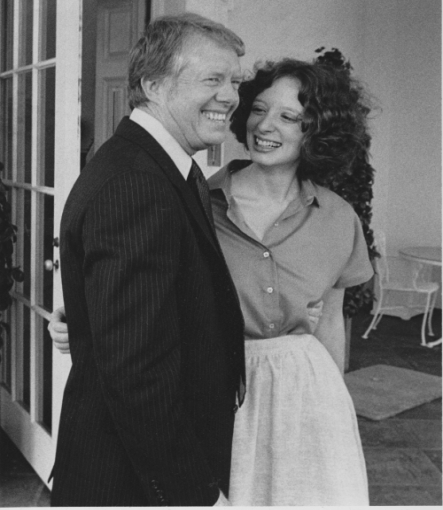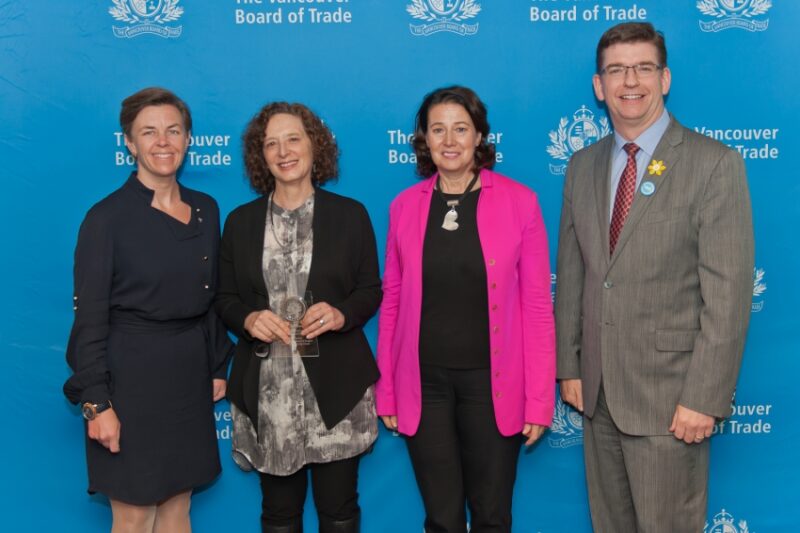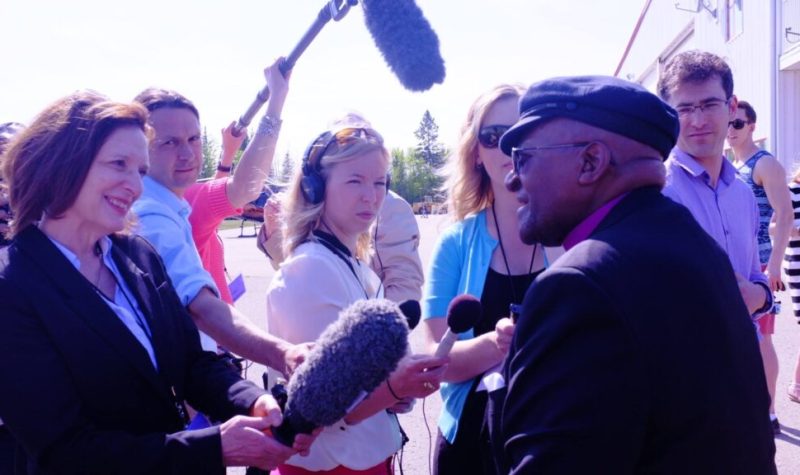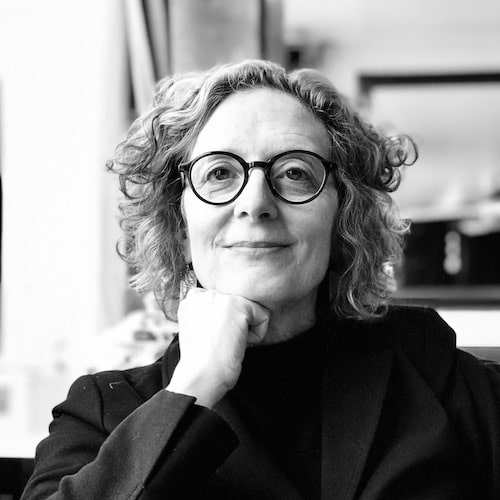By Roy L Hales
Many of you probably know Linda Solomon Wood as the Editor-in-Chief of the CANADA'S NATIONAL OBSERVER , but the award winning investigative journalist lived on Cortes Island for five years after 9/11. While she currently lives in Vancouver, Linda returns every summer. In this morning's interview I asked LInda Solomon Wood about her life, career in journalism and the National Observer's Cortes connection.
A Passion For People's Stories
“My biggest passion is people. I love talking to people, I love hearing people's stories. I like the way journalism is a passport into the interesting lives of other people and their stories. That's really what motivates me, finding the next great story. ”
The first story she remembers writing as a little girl in Chattanooga, Tennessee, was about mandatory school busing.
“… I remember there would be this guy standing in front of the high school going 'last call for the ghetto express.' So it was a story about that guy, and what that time was like - from the point of view of a thirteen-year-old. ”
Solomon Wood obtained an intern job writing obituaries and wedding notices "in the basement of the Greenfield Recorder 's office" in Massachusetts. She studied journalism at Northwestern and later became a full time reporter for the Tennessean . She was 20 or 21 at that time.

Linda Solomon Wood with President Jimmy Carter
The Big Things Journalism Can Do
“A lot of people my age were motivated by the Watergate hearings. Woodward and Bernstein had this idea about the big things that journalism could do, the ways that it could change society and people's lives. ”
A story on the front page of the Tennessean supposedly reached a million people.
“They would assume that every newspaper was read by two or three people. The numbers they used included all of those people… Landing stories on the front page was a really big deal. ”
“When I started out in journalism, there was the opportunity to just totally focus on your reporting and you didn't have any concerns about whether your publication was going to be publishing the next year or next week. I don't remember cutbacks or layoffs. I just remember a lot of hiring and a lot of energy training young reporters. There was a lot of value in getting us out there, giving us big stories. Stories went through legal revues… The newspaper probably had its own full time lawyers, that just wasn't an issue. And I also just remember the building. There was security when you came in, receptionists, a coffee desk. You were all in this big room. ”

The Move To Cortes Island
Solomon Wood was a freelancer living in New York, when al-Qaeda flew two airliners into the Twin Towers of the World Trade Center.
“I was pregnant with my second son and really wanted to get out of the super toxic polluted environment that we found ourselves in right after 9/11. So I came to Cortes and I really didn't expect it to be lifetime decision, but that's how things turned out. ”
She was on Cortes Island when Arianna Huffington founded the Huffington Post .
“It was very much about her and her Rolodex and she was creating this thing online…. I saw that… and I thought, okay I know I don't have Arianna Huffington's Rolodex but I have always wanted to have my own newspaper.
“Back in the day, as my son Lev says… you had to be so wealthy to even think about that. It was just completely out of reach, but with the internet it wasn't out of reach anymore. ”
Contributions From Two Cortes Residents
In the podcast above, Solomon Wood describes the contributions a couple of Cortes residents made to what would become the Vancouver Observer .
She had moved to Vancouver by the time Ruth Ozeki helped her find the name.
“We looked at the urls that were available. .. That was about 2006. There was very little available, but we came upon the Vancouver Observer. Because we were both from New York, we got really excited about it -because of the New York Observer ! ”
Barry Saxifrage gave Solomon Wood the software he had created for the Tideline and helped her figure it out.
Launching The Vancouver Observer
The Vancouver Observer didn't officially launch until 2009. During the three years prior to that, Solomon Wood said she was “messing about on the internet” and the site hardly made any money. Then, when Vancouver was about to host the Winter Olympics , someone offered to buy the website.
“And I thought oh my God, this has value. At that point… I took some of my own money… about $ 10,000 and I hired a designer from Emily Carr and a developer and we relaunched on Drupal software - which won't mean a lot to everybody, but to you computer nerds and technology lover , Drupal means a lot. ” said Solomon Wood. “We relaunched in time for the Olympics and that is when we started to generate money.”
Up until Facebook entered the market in 2014, Canada's National Observer was able to sell enough advertising to support itself. The next step was crowd funding campaigns.

“We were generating enough money from that to pay a few people and to get a lot more powerful reporting done. We did the Tar Sands Reporting project and Reports from the Energy Battlegrounds . ”

Canada's National Observer
After it became apparent they needed a broader platform, Linda Solomon Wood launched Canada's National Observer in 2015 .
Some asked why they erected a paywall, forcing viewers to subscribe after reading three articles. The National Observer was too small. Many people had not even heard of it.
“That's true, but we cannot do this for free. Journalists have to be paid salaries. I have to be paid. We cannot just go on without a clear revenue stream. ”
Subscription sales provided 50% of their revenue by 2019.

The COVID Challenge
In the six weeks prior to our interview, “fifty community newspapers went under and 2,300 journalists lost their jobs” because of the COVID pandemic.
“We easily could have gone right out of business. Things became very uncertain. Income we had counted on just wasn't going to be there any more. ”
However Canada's National Observer continued.

A Reporter For Cortes & Quadra Islands
The decision to hire a reporter to cover Cortes and Quadra Islands was prompted by legislation the federal government passed in March 2019. $ 50 million is to be provided to local journalism to “news deserts” and “areas of news poverty” over the course of five years.
“The small community that I know about and care about is Cortes. I also know a little about Quadra because I married a man, David Wood, who has some ties to Quadra… These areas are so rich in amazing stories… ”
“One day, I was just walking down the road and Andrea Block happened to be walking there too. Andrea told me she was heading for Mansons Lagoon, picking up the trash along the way. We got into this long conversation about why she was doing it and her ideas about the environment and waste. ”
“I'm telling you this story because there is a level of sophistication and intelligence on these islands which people have brought from lots of other places. That is the fodder for many amazing stories. ”
”… It was really important to us that we find the right reporter, who really understands island culture… We were so happy that Rochelle Baker applied because she also had the journalistic experience that these grants required us to come forward with.”
”… We've got an amazing response about her work because she manages to tell stories without being invasive in reflecting what each person or organization really wants to say about themselves. She brings a critical look, but not in a harsh way. ”
The Detail & Particular

“What happens in rural and remote Canada is fascinating and epic. People all over the world are interested. One of Rochelle's stories, about goats on Quadra , was picked up in Mother Jones because we are part of something called the Climate Desk . We share stories with the Guardian , Mother Jones, the Nation , Grist and other publications that are really focused on climate change, like we are. It was wonderful to see a story from Quadra Island, about something quirky and particular, be of interest to people everywhere. Sometimes it is the detail and the particular, that is universal. ”
There is much more in the podcast.
Top photo credit: Linda Solomon Wood interviewing Bishop Desmond Tutu following his helicopter tour of the Alberta oil sands, circa 2014. Photograph by Bill Weaver



